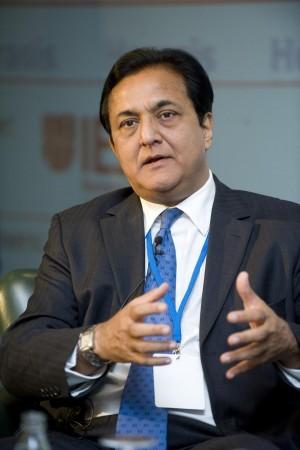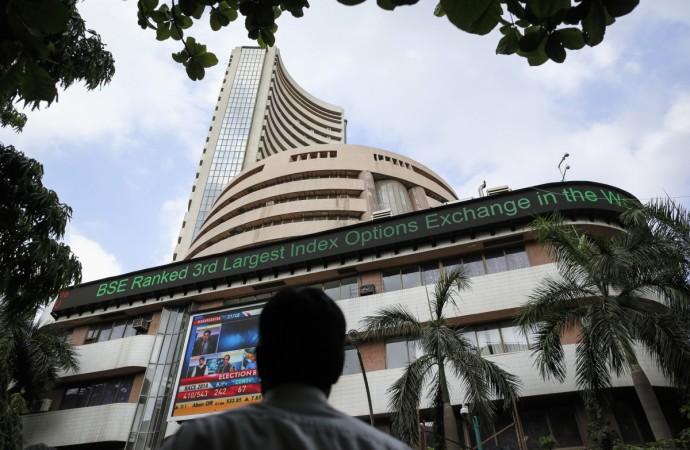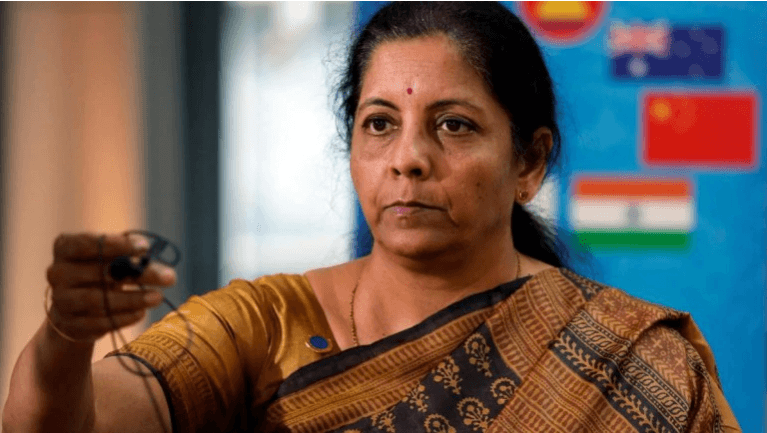They say, "Rome wasn't built in a day" so are the consequences of yesterday's actions not witnessed immediately but in time. The Yes Bank crisis saga is one such example, putting Indian economy in the spotlight and on red alert with bad loans amounting to more than $200 billion, bigger than Italy's financial debt.
State-run banks are taking the maximum burden of negative credit, and private-lenders such as Yes Bank do not monitor their lending approaches with favoured credits to certain customers, leading to eventually fall into a trap of bad debt.
Dating back in time till now
Let's take a closer look at the Yes Bank crisis saga through years of negative credit and heavy lending:
It all started about 17 years ago, when Rana Kapoor, Ashok Kapur and colleague Harikat Singh established Yes Bank on November 21, 2003. It officially obtained a certificate for commencement of business on January 21, 2004.
A year later in 2005, Yes Bank came out with an IPO offering. Ashok Kapur's wife is Madhu Kapur, and her sister Bindu got married to Rana Kapoor, thus Ashok and Rana were not just related as co-founders and promoters of the Yes Bank, but also as co-brothers. All was fine with the founders on both personal and professional fronts, until the terrorist attack in 2008.
The Bend
On November 26, 2008, Ashok Kapur, the non-executive chairman and founding promoter of Yes Bank, was killed by terrorists in the Trident-Oberoi hotel complex in Mumbai. Kapur held nearly 12 per cent in the bank. He had gone out with his wife at the hotel's Kandahar restaurant when the terrorist firing broke out. Kapur was found dead on the 19th floor of the hotel, as told by a bank spokesperson.
It took some time for the family to get over grieving the loss, and during the period in 2009, Madhu Kapur made a bid to nominate her daughter Shagun to the board, but the decision was rejected on grounds of not meeting RBI's criteria of "fit and proper." Once again in 2011, despite repeated attempts, the nomination for Shagun into the board of directors did not go through as she was considered too young for the job role.

In 2012, Rana Kapoor published a brief history of Yes Bank and no reference to Ashok Kapur was made in the publication. The name of Madhu Kapur was then struck off the list of major shareholders and as of March 31, 2019, it showed Rana Kapoor held 14.8% stake and Madhu Kapur held 12.68%. Then another move was to completely decimate the Kapur name from any activity of the bank by nominating three new directors - Ravish Chopra, Diwan Arun Nanda and M R Srinivasan to the board.
Madhu wasn't consulted when nominating directors to the board, a case was filed by Madhu seeking High Court (HC) intervention to set legalities right, that went on for some years before the appointment of new directors was called invalid by HC stating that "it was ultra vires to the articles of association of the bank" and termed "null and void." The Bombay High Court ruled in 2015 that she had inherited the right to nominate directors to Yes Bank's board.
The loss story begins
From 2008 to 2017, Rana Kapoor by himself led the bank operations and lent loans to corporate entities - both big and small at higher interest rates, while taking upfront loan fees from them used to run the bank.

In January 2017, the rising share price of Yes Bank made Rana Kapoor a billionaire in the Bloomberg Billionaires Index, as stocks jumped by 16.4% to become the best-performing stock amongst Indian banks. The majority of Kapoor's fortune is derived from his 11.6% stake in the lender. In the same year, the industry's gross bad-loan ratio jumped to a 14-year high of 9.1% in September, according to the Reserve Bank of India's Financial Stability Report released in December.
In September 2018, Yes Bank shares hit a new low and the Bank lost out on a lot of money. RBI announced that they had ordered Kapoor to step down from his CEO position in January 2019.
While the search for the new CEO went on, Kapoor tweeted, "All good. I love Yes Bank. I will never sell my shares." CARE rates Yes Bank very poor in its rating credibility of performance and profits.
In October 2018, Kapoor requested RBI for some time to set things right, but RBI refused to agree and the Bank's profits estimates then again were missed by a huge margin. Shares dropped by 7% in November 2018, OP Bhatt resigned but the private lender's appointment process of a new CEO continued. In December 2018, T S Vijayan was appointed as an Independent Director on the Board of YES BANK for a period of 5 years.
Switching hands, seeking profits
In January 2019, Yes Bank appointed Ravneet Gill as the MD & CEO for a period of 3 years from March 1, 2019 subject to the approval of shareholders at the ensuing Annual General Meeting of the Bank to be held in the month of June 2019. While things start to take some form of normalcy, RBI slaps fine on Yes Bank on account of non-compliance.
The bank was in trouble again, former director Uttam Prakash Agarwal asked SEBI to investigate whether the process followed by MD and CEO Ravneet Gill had been law-compliant. Also, a probe if the information provided to the board, disseminated to the public through a press release by the Bank, and to the stock exchanges and the RBI "are false or misleading or distorted". The top management witnessed a reshuffle again, quarterly results revealed huge losses by the bank and shares plunge. Macquarie downgraded Yes Bank's rating.

In May 2019, RBI slapped another fine on Yes bank for violating money transfer norms, and another negative rating by ICRA followed. The ex-rbi guy was appointed as a director on Yes Bank's board and another fine on violation of PPI norms was issued by the RBI on Yes Bank with a penalty of Rs 11.25 lakh each was imposed on the PPI issuers - Yes Bank and ZipCash. In July 2019, Kapoor took a loan against his entire stake in the bank and shares fell. In August 2019, Yes Bank announced the appointment of Anurag Adlakha as the new chief financial officer (CFO).
In September 2019, Rana Kapoor sold some stake in Yes Bank through the open market. In October 2019, Yes Bank's group president Rajat Monga quit and the bank said that a Hong Kong investor is evaluating investment of a huge amount of money to revive the debted Bank. But towards the end, it turned out that the Hong Kong investors are in some legal trouble.
Moody's gives a negative rating again to the Bank, share values slump again and customers are looking at a prospective merger of the Bank with an established financial entity in December 2019.
In January 2020, considering complaints and counter-allegations between Ravneet Gill, Uttam Prakash Agarwal and some of the board members, the financial regulator RBI stepped up its own enquiry about Agarwal's eligibility and initiated a probe on him to check if meets the 'fit and proper' criteria set out by RBI. Yes Bank independent director and chairman of the bank's audit committee Uttam Prakash Agarwal then resigned from the board.
RBI takes control
In March 2020, in view of the deteriorating financial health of the Bank, RBI and the government now took matters into their hands and issued a moratorium on March 5, capping withdrawals at Rs 50,000 which will remain in effect until April 3, 2020. In less than two days after the RBI took control of the capital-starved bank, SBI Chairman Rajnish Kumar showed interest to acquire 49 per cent stake by investing 24.5 billion rupees and demands suspension of trading till a formal announcement of restructuring by the RBI.

Finance Minister Nirmala Sitharaman reacts on the Yes Bank crisis and assures depositors that, "Their money is safe. I am constantly in touch with the Reserve Bank of India (RBI). The steps that are taken are in the interest of the depositors, the bank and the economy." RBI then announces reconstruction scheme for Yes Bank revival and invites suggestions and comments from members of the public, including the banks' shareholders, depositors and creditors on the draft scheme.
RBI's moratorium on Yes Bank affects operations of its digital partner PhonePe resulting in service shutdown for long hours. Further, ED registers money laundering case under the PMLA act and raided Mumbai residence of Yes Bank founder Rana Kapoor yesterday.
Time to wait and watch!
While the probe is on and Yes Bank UPI services are shut down, the RBI, finance ministry and the government are keen on arriving at a solution soon to resolve the crisis at hand with a concrete plan of action.
As for customers, investors, stakeholders and Yes Bank depositors, there's no need to panic. Your money is safe as assured by the Finance Minister.
Time is the answer to all questions unanswered. It's a wait and watch mode for the Indian economy as it would take time for the Indian banking system to revive itself from the deep impact of the present crisis and stabilize.











